Sleep Apnea
People with sleep apnea stop breathing while they sleep, sometimes hundreds of times per night, and sometimes for a minute or longer. With normal breathing, air passes through the nose and past the flexible structures, such as the soft palate, uvula, and tongue, in the back of the throat. When awake, the muscles hold this airway open. When asleep, these muscles relax, but the airway should remain open. In those who suffer from sleep apnea, the upper airway is blocked, causing oxygen levels to drop in both the brain and the blood.
Causes of Sleep Apnea
While sleeping, the airway in the throat may become partially or fully blocked, which may be caused by the following:
- Large tongue and tonsils compared to the opening in the windpipe
- Obesity
- Cardiovascular problems
- Throat and tongue muscles that are much more relaxed than normal
- Aging, which may limit the brain’s ability to keep throat muscles stiff during sleep
How is Sleep Apnea Diagnosed?
Sleep apnea may be diagnosed by a physical examination, review of family and medical history, and a sleep study. Patients may be referred to a sleep specialist to perform a sleep study test. A polysomnogram (PSG) is the most common sleep study test for diagnosing sleep apnea. A PSG records brain activity, eye movements, heart rate, and blood pressure. It also records the amount of oxygen in the blood and air movement in the lungs during breathing and snoring.
What People Say About Us!
The whole staff is very compassionate and helpful. They have helped us with a very hard time.
Types of Sleep Apnea
There are three types of sleep apnea:
Obstructive Sleep Apnea
Obstructive sleep apnea (OSA) is the most common form of sleep apnea. It occurs when the soft tissue at the back of the throat closes, blocking or obstructing the airway.
Central Sleep Apnea
The airway remains open in central sleep apnea, but the brain does not send signals to the muscles involved in breathing.
Mixed Sleep Apnea
Mixed sleep apnea combines aspects of the obstructive and central types of apnea. A common warning sign of sleep apnea is snoring, especially when it is interspersed with gasps or lack of breathing.
Sleep Apnea Treatment in Covina, CA
Sleep apnea can be treated with lifestyle changes such as losing weight, cutting down on alcohol consumption and quitting smoking. Custom-made mouthpieces and nasal-training devices are also commonly used to treat sleep apnea. Other treatments may include:
Continuous Positive Airway Pressure
A continuous positive airway pressure (CPAP) machine uses a mask that fits over the mouth and nose. The machine blows air into the throat, and the pressure from the air helps keep the airway open during sleep.
Surgery
By repositioning the anatomic structure of the mouth and facial bones, surgeons are able to eliminate the tissue that collapses during sleep.
Depending on the severity of the sleep apnea, dentists with training in oral appliance therapy can determine which appliance is best suited for a specific dental and medical condition. Working in conjunction with a physician, the dentist may participate in the patient’s diagnosis, treatment, and on-going care.
Complications of Untreated Sleep Apnea
The frequent drops in blood-oxygen levels and reduced sleep quality caused by sleep apnea can trigger the release of stress hormones that may cause serious complications. Left untreated, sleep apnea can cause headaches, daytime fatigue, and memory problems. More serious complications may include:
- High blood pressure
- Heart arrhythmia
- Heart attack
- Stroke
Sleep apnea can be diagnosed and effectively treated. A doctor should be consulted for the best treatment option.
Schedule a Consultation for Sleep Apnea Treatment in Covina, CA
Whether you are concerned that you are at risk of developing sleep apnea, or have previously been diagnosed and are now seeking treatment, contact Cypress Dental at (626) 331-8041 to schedule your appointment.

















